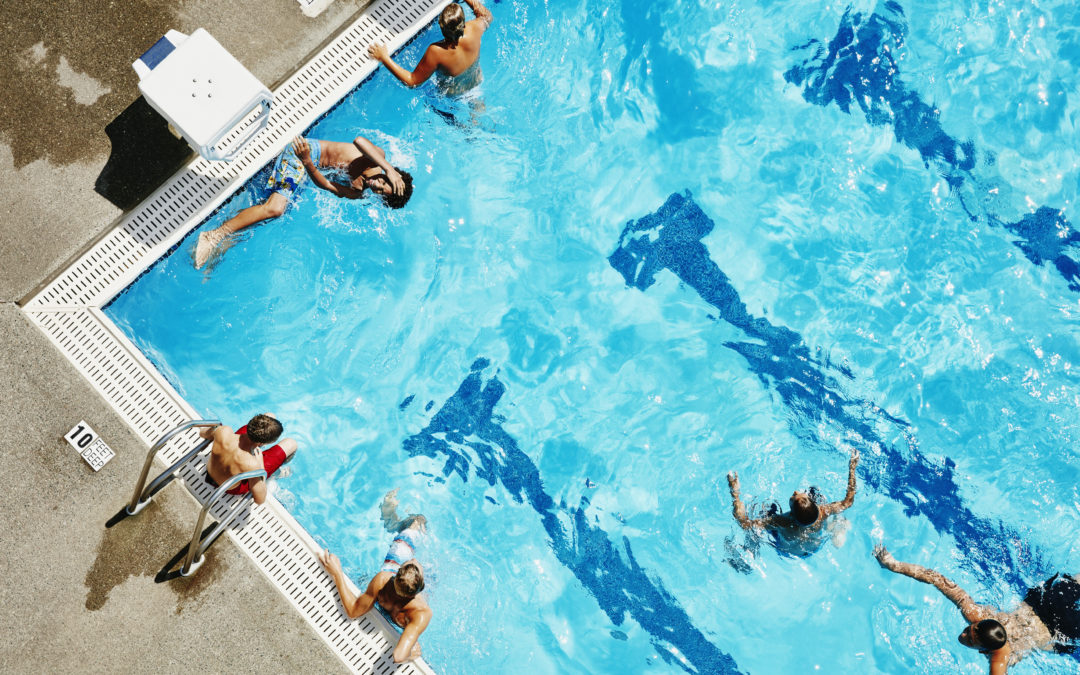More community association pools are open this summer, welcome news as the season heats up, but the COVID-19 pandemic again is altering operations as board members and community managers prioritize the safety of residents and staff members.
This spring, CAI surveyed roughly 1,000 members about their pool plans for 2021. Vaccine rollouts, easing capacity and distancing requirements, better liability protection, and more confidence in operations seem to be giving an increasing number of communities reasons to reopen pools this year.
Only 2% of survey respondents said they plan to close the pool this season compared to nearly 44% last year, and associations delaying their pool openings dropped from 30% in 2020 to about 9% in 2021. More than a quarter of respondents were still undecided about their pools when surveyed. The biggest factors delaying the decision to open pools were fear of legal exposure; inability to meet federal, state, or local public health requirements; and concern about spreading the virus.
An overwhelming majority of respondents will not require proof of a COVID-19 vaccine to use the pool. Just over 6% of associations will require them for residents, and about 3% are requiring them for employees and contractors.
Boards can’t reasonably or legally bar unvaccinated residents from the common areas without risking violating fair housing laws, says Mark Einhorn, an attorney with Marcus, Errico, Emmer & Brooks in Braintree, Mass. “Also, imposing a vaccine requirement implies that you are going to enforce it, and that creates potential liability if you don’t,” he adds.
Getting residents to adhere to pool restrictions does not seem to be a problem for most associations. Eighty percent of survey respondents reported no issues with residents complying with pool rules. Leah K. Burton, an attorney with Roberts Markel Weinberg Butler Hailey in San Antonio, recommends that boards record and enforce COVID-19-specific pool rules and inform residents that they “will expire when state mandates are lifted.”
Forty percent of survey respondents will require residents to sign a liability waiver when pools are open.
George E. Nowack, partner and co-founder of NowackHoward in Atlanta, a CAI past president, and a fellow in CAI’s College of Community Association Lawyers (CCAL), recommends that associations use an assumption of risk statement instead. “As the name indicates, a signer expressly acknowledges there is a risk and agrees to assume that risk. It is a significantly stronger defense than a waiver,” he notes.
“A person can assume the risk if they are informed of the danger. Acknowledging the conditions and the risk, together with the information released by the Centers for Disease Control and Prevention, makes sure a person is informed,” before voluntarily assuming the risk of contracting COVID-19 on association property, adds Nowack.
>> Pool Position: Swim Season Operations During the COVID-19 Pandemic is free for CAI members and $19.99 for nonmembers.


